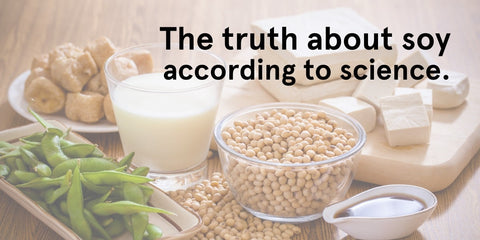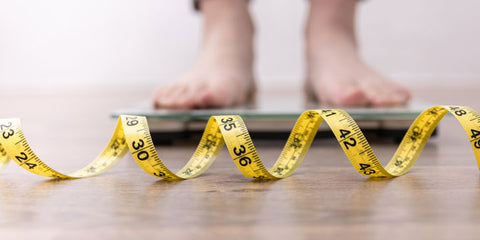You, a vegetarian, a vegan, and a fluffy pet parent; what do they all have in common? You’re all looking for the best ways to eat enough protein without damaging the planet or our animal friends.
Vegetarians and vegans can sometimes find it difficult to add additional protein to their diets because of how popular animal-based proteins are. Lucky for you, more plant-based products and foods are being made available as more people transition to eating less meat.
Plant-based options are excellent for vegans, the planet, and our health. However, these protein sources aren’t just for vegans or vegetarians - these are great sources of protein for everyone looking to be healthier and to have less impact on the planet!
Your protein intake is essential no matter your lifestyle. Whether you’re a vegetarian, omnivore, or vegan, your body requires protein to operate optimally.
Why Is Protein Important In Your Diet?
Protein nourishes your body and is one of the building blocks of a healthy diet. There are several important roles that protein plays in your life.
- Protein is essential for helping you grow. Your muscles, cartilage, skin, and bones depend on protein to retain their strength.
- In the same way that protein helps you grow, it also helps repair. When your muscles and tissue break down, protein is what repairs them. For those who have labor-intensive jobs or incorporate exercise into their lives, protein can help you recover more quickly and continue to work.
- Protein can better your ability to digest more easily. Protein helps make enzymes, and enzymes help you digest food. Being better at digesting your food allows you to absorb more vitamins and nutrients, meaning a healthier body overall.
- Protein helps regulate your body. Protein can balance out your fluid balance of blood and water, along with regulating your hormones during the transformation of cells.
According to the Cleveland Clinic, “Protein should represent about 10 to 35% of your daily calories, depending on your overall health and activity level. The average healthy adult should have .8-1.0 g/kg of protein each day. This means that an average woman weighing 150 lbs. should aim for 54 to 68 grams of protein each day. It’s also best to eat a consistent amount of protein throughout each day rather than load up at one meal and go without for other meals. Your body loves consistency, especially in protein intake.”
You can find protein in various foods; it just takes a bit of research and mindfulness. Luckily, we’ve collected a list of the best protein sources for vegans.
Vegan Protein Sources

We’ve gathered some great protein sources for vegans and even threw in a couple of dishes for you to try making with each ingredient.
Tofu
Tofu is a fantastic source of protein for vegans. Tofu is curdled soy milk formed into a block shape that can have a more firm or soft texture depending on how it’s made.
Soft tofu is creamy and can be used in dressings for salads, whereas firm tofu is best for frying and using as a meat substitute.
A 3-ounce slice of tofu has 78 calories, 4 grams of fat, and 8.7 grams of protein. The best part is that tofu contains all nine essential amino acids that your body can't make on its own.

Tofu dishes you may want to try:
- Pan-fried sesame garlic tofu over rice
- Mushroom and chive tofu croutons (great for making a protein-packed salad)
- Tofu breakfast scramble
Edamame
Edamame beans are immature soybeans. You may have encountered edamame pods on a Japanese dinner outing. Edamame is buttery and slightly sweet with hints of nuttiness, making it a subtle yet delicious addition to any meal.
Out of the pod (unshelled), 3/4 cups of edamame or 85 grams has 90 calories, 4 grams of fat, and 9 grams of protein. Along with being a great source of protein, edamame is rich in calcium, iron, vitamin K, and other nutrients.
Although often served on its own, you can also incorporate edamame into plenty of dishes.
Edamame dishes you may want to try:
- Green miso soup
- Edamame pesto
- Edamame and hummus wrap
Soylent
If you’re looking for a no-fuss way to add more protein into your diet, Soylent is a great solution.
No meal-prep or cooking is required; Soylent offers complete nutrition. Soylent is made of high-quality ingredients, including soy, 39 essential nutrients, healthy fats, and allulose.
Soylent is available in powdered form and as pre-prepped bottles. When you drink a serving of Soylent, you’re giving your body 400 calories, 24 grams of fat, and 20 grams of plant-based protein. Soylent’s an excellent substitute for other vegan protein powders.

You can enjoy Soylent on the go or at the end of the day if you’re 20 grams of protein away from hitting your goal intake. Sip and enjoy knowing that Soylent is both science-backed and sustainable.
Nutritional Yeast
Nutritional yeast is yeast grown to be explicitly used in food products. The yeast adds a nutty, cheesy, and savory flavor to your dishes. Nutritional yeast is different from baker’s or brewer’s yeast as it doesn’t have the same rising effect.
Nutritional yeast is vegan and has many nutritional benefits. The yeast is protein-packed, has all nine amino acids, and contains trace minerals like zinc and magnesium. Per .25 cups of nutritional yeast, you can add 60 calories, 3 grams of fiber, and 8 grams of protein to your diet.
You can use nutritional yeast as a spice sprinkled on top of your meals or stir and incorporate it into various dishes.
Dishes with nutritional yeast you may want to try:
- Vegan cauliflower mac N’ cheese
- Vegan cheddar jalapeno biscuits
- Popcorn with nutritional yeast sprinkles

For our vegan friends in need of a cheesy fix, nutritional yeast may be your savior.
Get Your Protein In!
Protein is vital for building muscle and fulfilling your body’s needs. Adding protein into your diet as a vegan doesn’t have to be a hassle. You can increase your protein intake every day with drinks like Soylent and the small addition of foods like nutritional yeast and edamame.
There are many other sources of protein for you to choose from, especially if you have an open mind. In our collection, we focused on foods with the highest protein to calorie ratios, but chia seeds, yellow peas, and hemp seeds are excellent sources of protein as well.
Don’t let veganism get in the way of meeting your body’s needs. Protein is super accessible, and there are plenty of ways to incorporate more of it into your diet.






